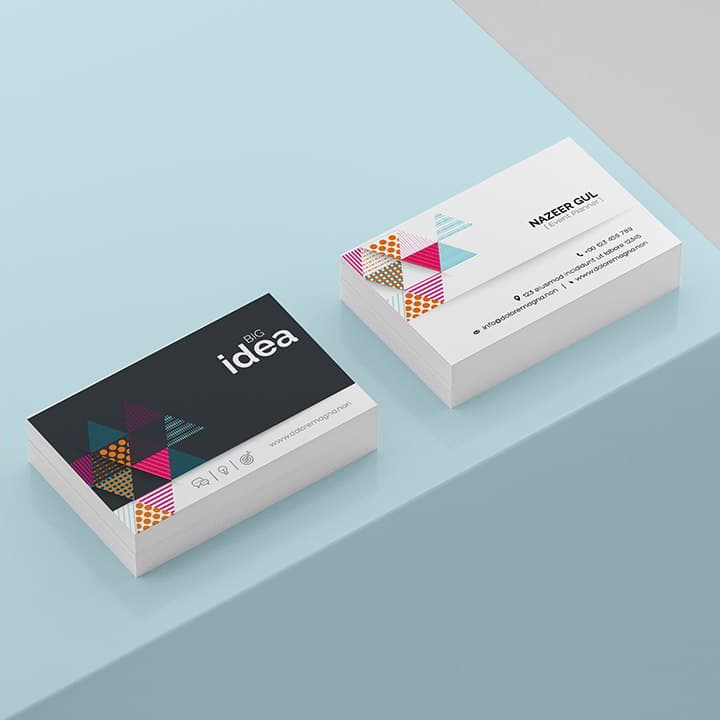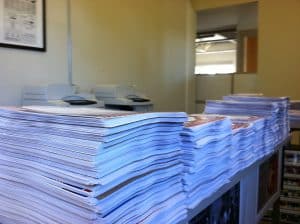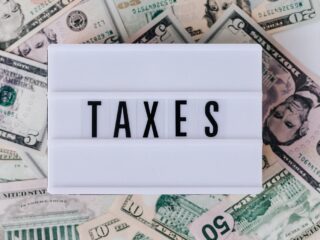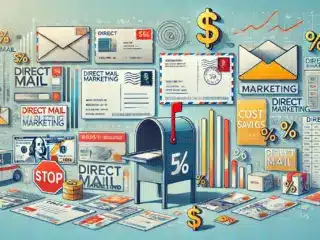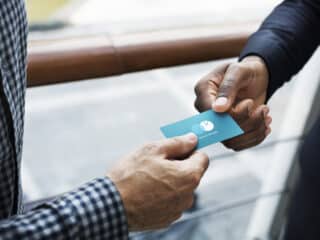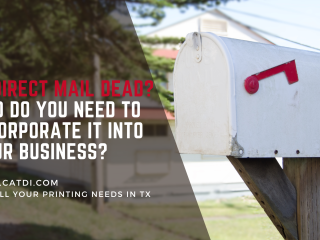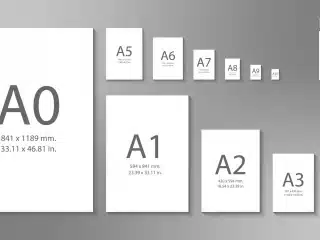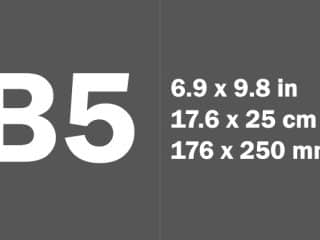Last Updated on April 14, 2024 by Carlos Alonso
“A business card cuts through the digital noise. It’s a tangible statement: I’m serious about connecting with you, and this connection matters.”– John Hayes
Imagine this: At the end of a bustling tech conference, amidst the sea of digital interactions, you exchange a sleek, well-designed business card with a potential lead. Weeks later, that person calls you, eager to discuss possible collaborations.
In a world dominated by quick emails and instant messages, the impact of a physical business card can still surprise us. Despite growing skepticism about their relevance in an increasingly digital landscape, business cards carve a niche.
Business cards facilitate memorable introductions and bolster professional networks by adding a personal touch that digital means often lack. Therefore, they are not just surviving but thriving, proving themselves essential tools for meaningful and effective connections.
Are Business Cards Still Relevant?
Business cards are still quite indispensable in our digital era. Despite the prevalence of digital tools, they hold a unique and irreplaceable value as tangible reminders of personal encounters, something that no digital alternative can replicate.
A digital message is easily lost among the flood of notifications most professionals receive daily, but a business card remains in your contact’s wallet or desk, continually reminding them of your meeting. Moreover, business cards symbolize professionalism and preparedness.
They demonstrate that you are serious about your business and ready to connect at any time, creating a lasting impression that digital means often fail to make.
Why Are Business Cards Important?
Business cards stand out as timeless tools that extend beyond mere exchange of contact details. They encapsulate the essence of personal branding and foster genuine connections that might otherwise be lost in the fast-paced digital shuffle.
Networking and Building Relationships
The core value of a business card lies in its ability to facilitate face-to-face networking and build lasting relationships. Whether at conferences, business meetings, or casual encounters, exchanging business cards can serve as the first step in a meaningful professional relationship.
This small but powerful tool enables individuals to leave a physical reminder of their presence, making it easier for new contacts to reach out and connect further.
First Impressions
The design and quality of your business card make a decisive first impression. A well-crafted business card that reflects your brand identity and professionalism can distinguish you from competitors.
Unique elements like texture, color, and typography can capture the essence of your personal or company brand, making your introduction memorable. This tangible aspect of your professional introduction plays a critical role in how potential clients and partners perceive you from the outset.
Branding and Memorability
Business cards are not just tools for sharing contact information; they are also an extension of your brand. Each card you distribute contributes to how your business is perceived, reinforcing your brand identity with every exchange.
Thoughtful details that align with your company’s branding, such as logos, company colors, and slogans, help ensure that your business remains top of mind. Moreover, the physical nature of a business card helps in retaining information better than digital methods, making it a key player in brand recall and memorability.
Do Business Cards Still Work?
The traditional business card may seem like a relic of the past. However, evidence and business trends continue to support the effectiveness of business cards in multiple ways:
Direct Marketing Tools
Business cards act as direct marketing tools unmatched by digital counterparts. Unlike online ads or e-mail marketing that can be overlooked or lost in a cluttered inbox, a business card is a physical object that can stay with a person.
This constant physical presence makes it more likely to recall the person or business represented, thus increasing the chance of successful business transactions.
Success Stories and Statistics
Reports and case studies consistently highlight the impact of business cards. For example, a survey by a major printing company revealed that for every 2,000 business cards distributed, a company’s sales increased by 2.5%.
Such statistics underscore the tangible benefits of maintaining and exchanging business cards as part of a comprehensive marketing strategy.
Bridging the Digital Gap with Technology
Modern business cards often incorporate digital elements like QR codes, which link directly to professional websites, portfolios, or contact details. This fusion of traditional and digital technology enhances the functionality of the business card, allowing it to serve as a bridge between traditional networking and digital convenience.
This adaptability makes business cards extremely relevant in today’s hybrid professional environments.
Business Cards in the Digital Age: Best Practices
In an era where digital communication is ubiquitous, the significance of business cards might seem to wane. However, these small pieces of paper hold more power than one might assume. Here are some best practices for leveraging business cards in the digital age.
Design Matters
The design of your business card is a direct reflection of your brand. To make a lasting impression, consider the following:
- Quality: Opt for high-quality materials that convey the value you place on your connections.
- Visual Appeal: A well-designed card with a striking visual appeal can set you apart from the competition.
- Brand Alignment: Ensure that your business card’s design is consistent with your brand’s colors, fonts, and overall image.
Key Information
Your business card should contain essential information, but it should not be cluttered.
- Name and Title: Clearly state who you are and what you do.
- Contact Information: Provide multiple ways to get in touch, such as phone, email, and website.
- Social Media: If relevant, include social media handles to encourage digital connections.
The Power of Follow-Up
The exchange of business cards is just the beginning. To cement the connection:
- Timely Follow-Up: Reach out within a few days of meeting to remind the individual of your encounter.
- Personal Touch: Reference something specific from your conversation to show attentiveness.
- Next Steps: Suggest a concrete next step, such as a meeting or a call to discuss potential collaborations.
Do I Need Business Cards?
Business cards are most beneficial in scenarios where digital devices might not be the most convenient or personal way to exchange contact information. This includes:
- Conferences: Amidst a sea of attendees, a business card is a quick and effective way to make an introduction.
- Networking Events: They facilitate the exchange of information without the awkwardness of typing on a phone.
- Client Meetings: A business card can serve as a formal gesture that reinforces your professional image.
Are Business Cards Worth It in the Digital Age?
The humble business card still holds its ground as a powerful tool. Let’s explore the cost-effectiveness and versatility of business cards in today’s digital landscape.
Business Cards are Cost-Effective
When it comes to marketing efforts, business cards are a cost-effective option. They are:
- Affordable: Compared to ongoing digital marketing campaigns, business cards require a one-time investment for a long-lasting impact.
- Efficient: They provide all the necessary contact information in a compact, easy-to-carry format that’s always accessible.
Versatility Beyond Introduction
Business cards go beyond just making introductions; they serve multiple purposes:
- Appointment Reminders: They can be used to remind clients of upcoming meetings or events.
- Coupons: Offering discounts or special offers on business cards can encourage repeat business.
- Referral Tools: Encourage sharing by including referral incentives on your cards.
Long-Term Benefits
A well-designed business card can lead to future opportunities:
- Memorable Encounters: A unique business card can make an impression that lasts long after the initial meeting.
- Word-of-Mouth: Satisfied clients may pass your card along to others, expanding your network.
- Future Engagements: A business card can be the start of a long-term professional relationship.
Business cards are not only worth it but are an essential part of a comprehensive marketing strategy. They offer a tangible touchpoint in a digital world and can lead to meaningful professional relationships and opportunities.
How Do Business Cards Work?
Understanding the psychology behind the exchange of business cards can reveal why this practice remains relevant even in our digital age. Let’s take a look at the social and psychological significance of this tradition.
The Psychology Behind the Exchange
The act of exchanging business cards is more than a mere transfer of contact details; it’s a ritual steeped in professional tradition. Here’s why it works:
- Ritual Significance: The exchange is a recognized professional gesture, symbolizing the initiation of a business relationship.
- Memory Aid: A physical card serves as a tangible reminder of an encounter, more so than a digital note or email.
Trust and Commitment
Handing over a business card is a sign of trust and a willingness to open the door to future interactions. It conveys:
- Personal Investment: The physical act of giving a card shows a level of personal commitment to the connection.
- Trust Building: Receiving a card feels more personal and can help establish trust between professionals.
Exchange as a Ritual
The ritual of exchanging business cards carries with it an unspoken set of expectations and mutual respect. It:
- Fosters Professional Courtesy: The exchange is a non-verbal agreement of potential future correspondence.
- Encourages Reciprocity: When one party offers a card, it often prompts the other to reciprocate, facilitating equal exchange.
Business cards act as a bridge between the initial meeting and future communication. They are a physical embodiment of one’s professional identity and intent to engage further, playing a crucial role in the networking process.
The Enduring Value of Business Cards
As we navigate through the digital landscape, the question of the relevance of business cards in our professional lives persists. This article has explored various facets of business cards, from their psychological impact to their practical benefits in the digital age.
Business cards have proven to be more than just relics of a bygone era; they are active participants in the networking process. They provide a tangible touchpoint that digital communications often lack. In a world where our inboxes are inundated with transient digital messages, a business card stands out as a physical reminder of a personal encounter and the potential it holds.
FAQs: Understanding Business Cards in the Digital Age
Do business cards matter anymore?
Absolutely. Business cards remain a crucial element of professional etiquette, offering a personal touch that digital means can’t replicate.
Is it still important to have a business card?
Yes, it is. A business card is a physical extension of your professional identity and can be a key tool in networking and building relationships.
What is the main purpose of a business card?
The main purpose of a business card is to provide a tangible and convenient way to exchange contact information and to leave a lasting impression.
What is the difference between a traditional business card and a digital business card?
A traditional business card is a physical object, while a digital business card can be shared online. Both serve similar purposes, but traditional cards offer a unique sensory experience and immediacy.
Who needs business cards the most?
Professionals who engage in networking, attend industry events, or meet with clients and partners can benefit greatly from having business cards.
Why are business cards important in professional settings?
They convey professionalism, preparedness, and are an effective direct marketing tool that can lead to more meaningful engagements.
Are printed business cards better than digital?
Printed business cards can be more impactful due to their physical nature, which can make a memorable impression. However, digital cards offer convenience and ease of sharing in online settings.
Do business cards increase business?
Yes, they can. Business cards can lead to follow-up calls, meetings, and ultimately, new business opportunities.

